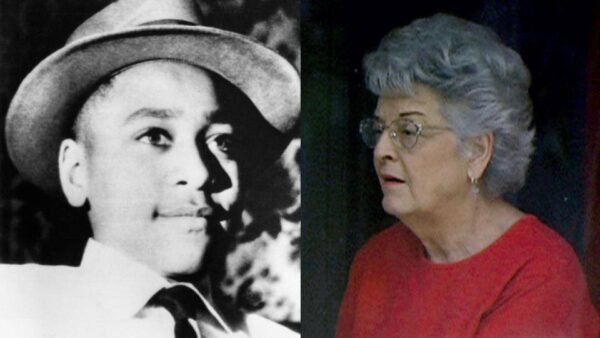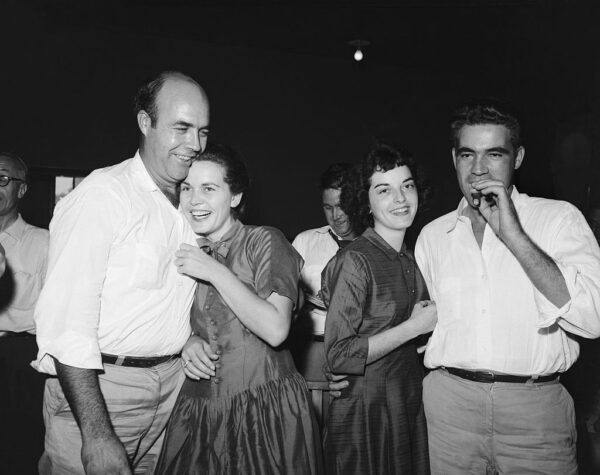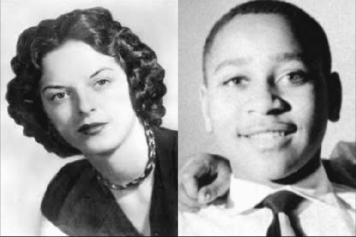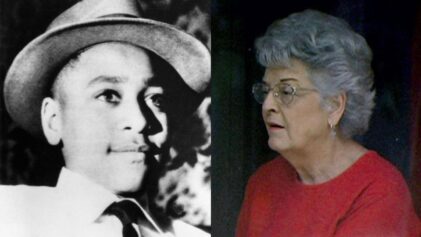The white woman who accused Emmett Till of flirting with her, which caused him to be lynched in 1955, said she did not want him to be killed and tried to save him from the brutal slaying.
Carolyn Bryant Donham made the proclamation in an unpublished manuscript obtained by The Associated Press Thursday. The contents have been made public amid a push by Emmett’s family and supporters for authorities to arrest Donham on a kidnapping warrant unearthed in the basement of a Mississippi courthouse last month.
Emmett’s family said Donham should be held responsible for her role in his kidnapping and murder.

Donham’s complaint about the 14-year-old boy making a pass at her spurred her then-husband into a violent rage.
Reports show Roy Bryant, his half-brother J.W. Milam and accomplices kidnapped Emmett at gunpoint. He was tortured, beaten, tied to a cotton gin fan with barbed wire and thrown into the Tallahatchie River in Mississippi.
Sheriffs did not execute the arrest warrant for the mother of two because she had small children at the time, according to reports. Emmett’s uncle said he heard a voice softer than a man identify him when they stormed his home to abduct the boy who was visiting from Chicago.
But Donham claims in the manuscript that she told the men Emmett was not the culprit and tried to protect him. The teenager was the one who identified himself, she said.
“I did not wish Emmett any harm and could not stop harm from coming to him, since I didn’t know what was planned for him,” Donham says in the manuscript compiled by her daughter-in-law. “I tried to protect him by telling Roy that ‘He’s not the one. That’s not him. Please take him home.'”
Donham said she “always felt like a victim as well as Emmett” and “paid dearly with an altered life” for his murder. Emmett’s lynching has served as an emblem of racial violence and injustice in America. Donham is the only person involved still alive. She is believed to be in her late 80s and was last listed as living in North Carolina.
The Justice Department has opened and closed two investigations into the slaying. The most recent was closed in December, where they found no wrongdoing on Donham’s part. A Mississippi grand jury also declined to bring manslaughter charges against Donham in 2007.
However, Emmett’s family and supporters hope that the warrant and the manuscript could lead to her prosecution.
Keith Beauchamp, a filmmaker whose documentary spurred a Justice Department probe that ended without charges in 2007, said the memoir shows that Donham “is culpable in the kidnapping and murder of Emmett” and “to not hold her accountable for her actions, is an injustice to us all.”
“Our fight will continue until justice is finally served,” Beauchamp said, who was among the search team that found the warrant in late June.
It is still unclear if the new findings will lead to Donham’s arrest. However, Mississippi prosecutors with jurisdiction over the case have pointed back to the uneventful DOJ investigations.
Jaribu Hill, an attorney for Emmett’s family, said Donham remained free with an unexpired warrant for more than six decades because she was white and the victim was Black.
“There was, and there still exists today, the white pedestal theory where white women are above reproach,” Hill said.

“Back in the day when the lynchings were raging and Mississippi had the largest number of lynchings … we know that many of those lynchings occurred because there was an alleged encounter between a Black man and a white woman.”
Hill hopes the theory that hinges on the stereotypical fragility of white women and the savagery of Black men is erased and Donham be held accountable.
“We’re challenging law enforcement and elected officials in particular to do their duties, to see that justice is done, and to strip away the final remnants of the double standard that still prevails to this day,” she said.
Historian and author Timothy Tyson, who said he received the manuscript from Donham after a 2008 interview, said he handed it over to The Associated Press because of the discovery of the warrant. He initially locked the 99-page memoir, “I am More Than A Wolf Whistle,” in an archive at the University of North Carolina and gave a copy to the FBI for the federal investigation.
“The potential for an investigation was more important than the archival agreements, though those are important things,” Tyson said. “But this is probably the last chance for an indictment in this case.”
Tyson told The Associated Press that Donham’s comments absolving herself of wrongdoing should be taken with “a good-sized shovel full of salt.”
Tyson alerted the FBI after his interview with Donham because she admitted to lying about Emmett’s advances when her husband and his half-brother were on trial for his murder. The men were later acquitted but confessed to killing the boy in a magazine interview.
Tyson said he doubts Emmett would have identified himself to the men.
“Two big white men with guns came and dragged him out of his aunt and great-uncle’s house at 2 a.m. in the Mississippi Delta in 1955. I do not believe for one minute that he identified himself,” he said.
Dale Killinger, a retired FBI agent who investigated the case more than 15 years ago, said the memoir also contains contradictory information.
Donham said she screamed for help during her interaction with Till inside her small store in Money, Mississippi, but Killinger said no one reported hearing her. She also never mentioned before that she spoke to her former husband about the kidnapping.
According to reports, Donham did apologize in the memoirs, saying, “I have always prayed that God would bless Emmett’s family. I am truly sorry for the pain his family was caused.”

